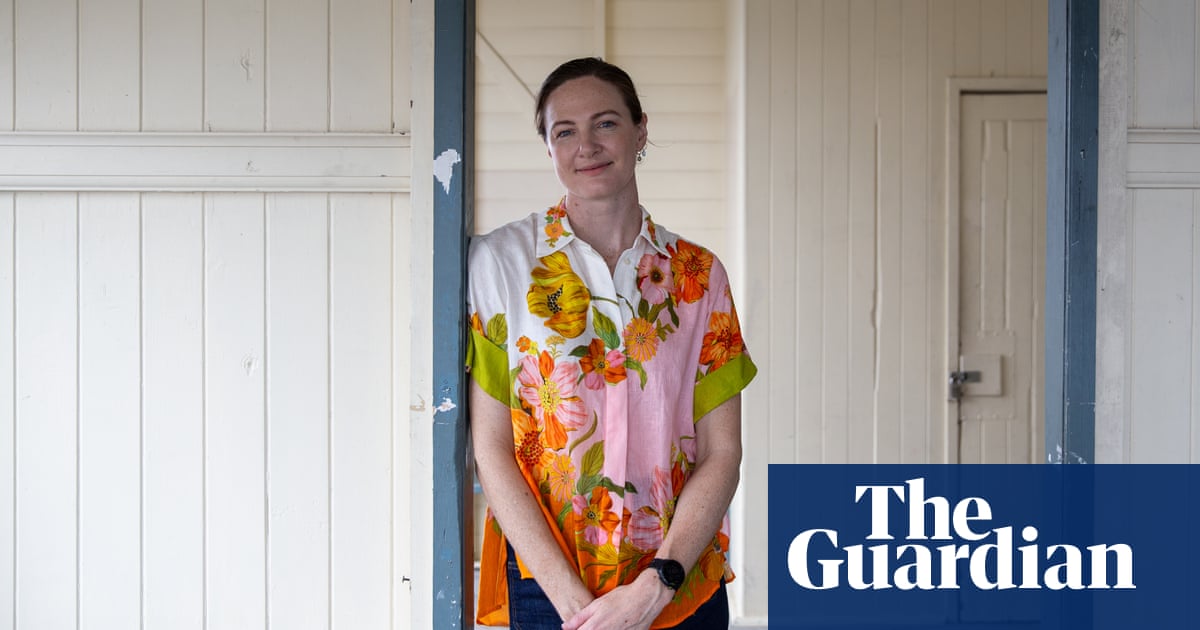Rock’n’roll might not be advertised as being good for your health, but it’s worked out all right for Grace Slick. The former Jefferson Airplane singer is talking me through a life story that spans psychedelic drugs, free love, alcoholism, house fires and a high speed car crash. And yet, even at the age of 85, she sounds as perky, full of mischief and hilariously coarse as any interviewee I can remember.
“Rock’n’roll people are spoiled brats,” she says at one point with a throaty cackle. “We don’t know anything about anything except having fun, how much money we can spend and who we can screw.”
Slick may have done all of these things but she also helped to define the sound of the 60s. Does any other track sum up the trippy Summer of Love quite like her song White Rabbit, a hypnotic two and a half minutes stuffed with references to pills and mushrooms? That song cleverly evaded censors, taking hallucinogenic drug references into the homes of millions, but then Slick has always had a thing for breaking the rules. She was the first person to drop the F-bomb on US television, for instance, when the band performed their song We Can Be Together on the Dick Cavett show, complete with its rallying call “Up against the wall, motherfucker”.
Yet the woman born Grace Barnett Wing has no idea where this rebellious streak came from. Her father was an investment banker, her mother looked after the home, and her upbringing in Illinois and then around parts of California was nothing out of the ordinary. She even attended Finch College, which she describes as a finishing school for young women in New York. A stable life had been mapped out for her. But there was something about that stifled 1950s way of living that just never appealed. “Don’t offend anybody, dress a certain way, get married, have children, stay at home and cook pies,” she snorts with disdain. “A whole bunch of women I knew at that time thought: ‘Don’t think so!’”
It was a report in the San Francisco Chronicle that changed everything for Slick. She had been modelling clothes and wondering how to escape a normal life when she read about a band called Jefferson Airplane who were making waves in the city. Whatever it was that was going on, she wanted a part of it. And so, with her first husband, Jerry Slick, she formed a band called the Great Society. They soon got a gig supporting Airplane, and when that band’s singer Signe Toly Anderson left, they came calling for Slick to replace her.
Who wouldn’t have wanted Slick to front their band? That voice – deep, powerful, utterly captivating – still sounds like the unravelling of an era, when peace-loving hippy platitudes spun off towards something darker and more foreboding. Slick also brought stage presence to the group and, of course, two era-defining songs. Somebody to Love, a Great Society track written by her brother-in-law Darby, was transformed by Jefferson Airplane into a terrifying psych-rock stomper. As for White Rabbit, well, it was rock’n’roll, but not as anyone had heard it before. Slick grew up listening to classical music rather than Elvis, and her strange, Spanish-sounding march emerged from a love of Ravel’s Boléro.
The lyrics, based on Lewis Carroll’s Alice’s Adventures in Wonderland, shocked parents across the US. And they were supposed to – after all, they were written about them and their slack parenting. “People kept saying: ‘Why do you young people use these chemicals now?’” she says. “Well, didn’t you notice the stories you were reading to us? Alice takes at least five different drugs in that book. Even Snow White was knocked out by some kind of chemical!”
Today, Slick is speaking from her home in Malibu, Los Angeles. When the California wildfires broke out in January, she was all packed up and ready to leave for a hotel that had been booked, but it didn’t come to that. Still, Slick is no stranger to fires. In 2018, the Woolsey fire reached the outskirts of her property. At her previous home, a fire started by welders working on a gate nearby in 1993 was not so merciful – it destroyed her property and all Slick’s possessions, including her music memorabilia. The only thing left after the blaze, she says, was a ceramic white rabbit. They seem to have followed her around. Fans still send them. She paints them, too, these days. She remembers one riotous gig in the 1970s when a fan put a live rabbit on stage.
“We were worried because what do you do?” she says. “We actually took it home. I remember it had one ear that wasn’t working, it didn’t stick up like rabbit’s ears do. And, oddly enough, he liked marijuana seeds. So not only were we loaded, but the rabbit was loaded too!”
What happened to the rabbit?
“We might have given him to one of the members of the band who had a child … I don’t know. We didn’t kill him or anything.”
Slick’s stories are often quite like the lyrics in White Rabbit – populated by all kinds of weird and wonderful characters and events. In her 1998 autobiography she recalls an encounter with the Doors’ Jim Morrison in which he was on all fours howling like a dog.
“No, it was more like a wolf,” she corrects me, as if that makes it perfectly understandable. “He was howling at the moon. But that was not unusual for Jim.”
It must have made an impression on Slick because, sometime later while on tour with the Doors, she found herself building up the courage to knock on Morrison’s hotel door. What followed was a session of smearing strawberries all over the room and a sexual encounter Slick describes as “like making love to a floating art form with eyes”. That might sound almost spiritual if not for her added acknowledgment: “He was a well-built boy … his cock was slightly larger than average.”
“I was kind of disappointed he never called back,” says Slick today with a laugh. “But, apparently I wasn’t his style.” She reminisces about the Morrison she knew. “You could talk to him, but it wasn’t a conversation. You’d say something about amplifiers and he would reply with something about the colours that happen on a car if you don’t put primer on it. You’d go, ‘How the hell did he come up with that?’”
The Morrison ghosting aside, Slick doesn’t have many regrets from this period. The band performed at the Monterey pop festival, a “wet” Woodstock (in which their evening set was so delayed they didn’t emerge on stage until the following morning after a night spent taking cocaine) and Altamont. They also performed a rooftop gig in New York two months before the Beatles had the same idea of doing it in London – and for extra bonus points, had it filmed by Jean-Luc Godard. “The city had never seen anything like that,” Slick recalls. “Everybody leaning out of their windows to see what was going on. The cops finally came and shut us down, but we knew that was going to happen. We got several songs in before they got there.”
Did she get a kick out of being naughty?
“I don’t know if naughty is the word,” she says, before adding with another guffaw: “Illegal is probably a better term.”
Had her plan to spike Richard Nixon’s tea ever come to fruition, it certainly would have been illegal. In 1970 she received an invitation to meet the president at the White House – she knew his daughter Tricia from her time at Finch – and arrived with about 600 micrograms of LSD in her pocket. Nixon never got to experience the fourth dimension. At the door, security were alerted to the fact that the respectable-sounding Ms Barnett Wing was actually Grace Slick, a radical rock’n’roller and security risk, and she was barred from the event.
Slick could be reckless, and when she began drinking heavily in the 70s the bad behaviour soured into something bleaker. She would heckle fans and, during one tour of Germany, ended up sticking her fingers up the nose of an audience member. Off stage, she would get behind the wheel of a car while inebriated. Once in 1971 she found herself caught up in a road race with the band’s lead guitarist Jorma Kaukonen, and hit a concrete wall at 80mph. “Very stupid of me,” she says. “That road was known as ‘deadly Doyle Drive’ for a reason. There was grease on it. And when you hit that grease, you start sliding.”
Slick was fortunate. The concrete wall ended up more damaged than she did. “I was lucky,” she says.
Slick was seeing Kaukonen for some time – and if you look into the great loves of her life, they almost all seem to have one thing in common: being in her band. Jerry Slick, Jack Casady, Spencer Dryden, Paul Kantner. As she puts it herself: “Yeah, I was very friendly with that band.”
She lets out another snort of laughter. “I learned that phrase from another guy I lived with for a while. He referred to women you could sleep with as being ‘friendly’ and I thought: ‘Well that’s a sweet way of putting it.’ So I was ‘friendly’ with everybody in the band except Marty [Balin]. But, if he had come on to me, I would have gone for Marty, too.”
She had a child with Kantner, a daughter they named China. Slick was determined to be an “alternative mum”, taking her on tour, showing her the world, and it worked out.
“She is just an amazing person,” says Slick proudly. “We’ve had our ups and downs, but she has kept on working on herself.” China had a successful career acting in television and films but these days is a non-denominational chaplain, working in hospitals with people who are dying or in distress. “She also has a real nasty sense of humour,” says Slick, perhaps even more proudly. Like mother, like daughter, I guess.
There were other things Slick shared with her daughter, such as a fondness for alcohol. When Slick entered rehab in the late 1990s, China would visit her. Then she surprised the staff by checking herself in, too. They have both been sober ever since. “I was a periodic drunk which means I didn’t drink every day,” says Slick. “I wouldn’t have any for a month and then I would get loaded on a weekend and get arrested and all that kind of stuff.” She has described her various arrests as TUIs – talking under the influence. Once she even waved an unloaded gun at a cop. “I had to go to rehab to learn, look, you can’t do this any more because you turn into an asshole.”
There were plenty of sober times as well. In the 1980s, after Jefferson Airplane had mutated into Jefferson Starship and then simply Starship, she scored several No 1 hits in the US with 1985’s We Built This City, Sara, and 1987’s Nothing’s Gonna Stop Us Now. Although still in her mid-to-late 40s, these hits made her, at the time, the oldest female chart topper in history (a record held until Cher’s Believe in 1998). Slick didn’t particularly like this fact. She felt uncomfortable up on stage singing in her 40s – to her, rock’n’roll was a young person’s game. And she hated the songs, which were no longer the creative product of the band members themselves but written by external hit-makers for them to perform.
“I thought they were ridiculous,” she says. “There isn’t a city built on rock’n’roll! Los Angeles was built on oil and oranges and the movie business.” The lyrics were written by Elton John’s longtime collaborator Bernie Taupin. “He’s British, and London obviously isn’t built on rock’n’roll. Stupid song. But our producer said, ‘Yeah, but it’s a hit.’ And he was right.” She starts listing some of the later songs of her career, mocking the lyrics and then delivering a long snoring noise. But if she hated the songs so much, why sing them?
“I kind of had to because I was trying to make it up to the band,” she says. “I’d been this wild, crazy-ass drunk. So to make up for it I was sober all through the 80s … which was a mistake.” Another cackle of laughter.
Since the mid-90s, Slick has turned to painting – mainly commercial works inspired by the counterculture through which she lived. On her website there are prints to buy of a topless Morrison, a hookah-smoking caterpillar and a trippy version of Monterey complete with white rabbit attenders. Does she paint every day?
“No, I will paint for a couple of months straight, all day, all night. Then I stop for a while to regenerate. Now, I am writing a lot of lyrics instead. I can’t stop. It’s a habit that’s harder to break than alcohol.”
She reads me a recent one: “I put the glory on you like a paper doll / You took it and wore it with no problem at all / So you took my heart and I took the fall / It took me years to see my mistake / The Prince Charming story was all a fake / You were just in it for all you could take / Paper doll.”
Slick plans to record some punk songs in a band she recently formed with her son-in-law. “He’s right up my alley because he’s as gross as I am,” she laughs. “We thought, nobody ever talks about bodily functions, so we’re doing a song called Yankin’ Boogers and Blowin’ Gas (Everybody’s got a Nose and an Ass). And there’s another one called Hernias and Hot Flashes.”
She’s cackling again, aware that being an 85-year-old punk singer is probably another rule she’s about to break. “Yeah,” she says, “it’ll be interesting to see what kind of repercussions I get from that.”










